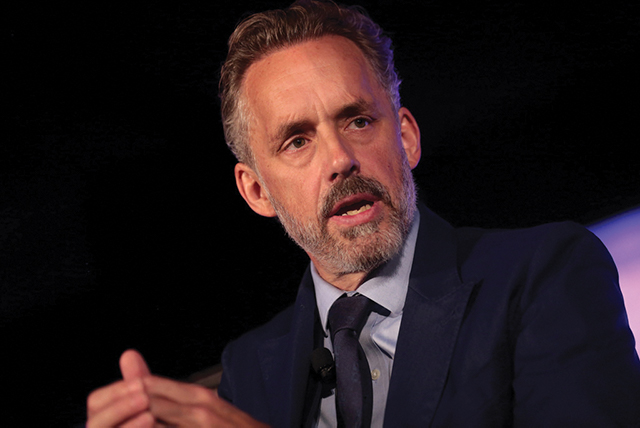
[dropcap]I[/dropcap]n a society where one of the world’s most powerful leaders is an egotistical narcissist, the importance of public intellectuals and social commentary has never been greater.
Canadian clinical psychologist, Jordan. B. Peterson is a man who has been catapulted into the stratosphere of social commentary. In the past 5 years, Peterson has established an enormous fanbase from the birth of his Youtube channel where he uploads his lectures from the University of Toronto. His 2018 book, 12 Rules for life: An Antidote to Chaos has sold more than two million books worldwide. Peterson received a standing ovation in front of a sold-out crowd at Dublin’s Olympia Theatre as part of his “12 Rules” tour.
Dave Rubin of The Rubin Report, a political news talk show, opened for Peterson in front of a crowd which consisted of a ratio of roughly 60:40 men to women. Rubin spoke of his own opinions of Peterson saying that “He [Peterson] is at the centre of the centre of what’s important right now”. Rubin introduced the Canadian to massive applause from the capacity crowd. He addressed his Irish heritage to great appeal from the fans who hung on to every word.
The first quarter of the show centred around the rise of his work and how there is a new thirst for knowledge, education and long form discussion. He illustrated how podcasts and Youtube videos have revolutionized how we can educate ourselves. Joe Rogan’s podcast has millions of listeners and features an array of diverse individuals from scientists to bowhunters, doctors, comedians and psychologists, to name but a few.
Peterson demonstrated that technology has “found us time” to gain insight into complex subjects that reading could never do. He exhibited how powerful this revolution is by saying that people are moving away from listening to music on their daily commute and are instead educating themselves through podcasts. In his opinion, this unedited, pure form of discussion is the most important method of constructing opinions on the world as filter bubbles and computer algorithms have left us just seeing what we want to see, which is extremely dangerous to a democratic system.
In his writings, Peterson cites Jung, Freud, Solzhenitsyn, Nietzsche and Dostoevsky. He is extremely well versed in their works, particularly in Aleksander Solzhenitsyn’s The Gulag Archipelago, which is essentially a diary from the soviet labour camps during Stalin’s dictatorship.
Peterson is well versed in the atrocities of the 20th century. His book is predicated on the notion that suffering is an inevitable part of life and that we must be able to face that. The main theme of the book is that one should not strive for happiness in life but should strive for meaning. Peterson says: “Life without depth is, by definition, shallow and meaningless. If your life is shallow and meaningless when you suffer, you’ll become resentful, hostile and self-critical, therefore it is a necessity to confront the deepest questions of life”.
Peterson is a character who has been scrutinized for his stance on social policy including compelled speech and gender politics. Though he has made his opinion on these matters clear, they are only a tiny proportion of the ideas he is trying to present to the world. There is no denying that his philosophy on life and meaning are truly revolutionary. Women and men around the world are selling out theatres to hear him speak about his understanding of the complexities of the human mind. Criticism and analysis of life by intellectuals is hugely important during this period of political uncertainty and volatile world leaders.
Craig Shaaban
Image Credit: Gage Skidmore – Flickr



